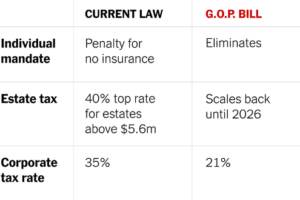
Jacqueline Fellows, for HealthLeaders Media , June 4, 2015
Data limitations don’t give an accurate picture of what Medicare reimbursement really means for physicians. But patients are increasingly aware of healthcare costs, and physicians should not shy away from a conversation.
The report released this week by the Centers for Medicare and Medicaid Services detailing that over 950,000 providers were paid $90 billion for medical services they provided to Medicare beneficiaries in 2013 has spawned sensational headlines about Medicare’s millionaire doctors. The headlines aren’t wrong, but it’s a small group of physicians that are garnering the attention of many. To prevent an inaccurate narrative, doctors may need to prepare for patients’ questions.
This is the second time CMS has released physician-specific data for Medicare payments in an effort be more transparent. In a prepared statement, American Medical Association President Robert Wah, MD, commended CMS for its effort, but criticized the agency for giving so little context to what the data means for patients.
“Specifically, the data released today do not provide actionable information on the quality of care that patients and physicians can use to make any meaningful conclusions … [or] enough context to prevent the types of inaccuracies, misinterpretations, and false assertions that occurred the last time the administration released Medicare Part B claims data.”
It’s true that the data has many limitations. For one, there is no information that gauges quality. It also shows information only on Medicare services. Depending on the payer mix of a physician office, Medicare beneficiaries could be a minority or majority. Geographic variation in payment amounts isn’t accounted for.
Despite the criticism and the limits of the data, however, CMS’s broad conclusions offer some insight into patient patterns. For example, the average number of office visits was six per enrolled Medicare beneficiary. States with the highest utilization rates include Texas, Florida, New York, and New Jersey.
One major improvement in the report is that drug reimbursements are separated out from physician services. That was not the case when data for 2012 was released to the public, which falsely inflated medical services reimbursements for some specialties.
Do patients care?
Consumers are demanding more price transparency for medical services. Does this report give them that information? Not really, says Anders Gilberg, senior vice president of government affairs for Medical Group Management Association (MGMA), the national organization that represents 33,000 practice administrators who are part of 18,000 healthcare organizations.
“The value of these data to Medicare patients is indirect at best,” Gilberg told me. “Unlike private health plans, physicians are paid by Medicare under a fully transparent fixed Medicare fee schedule that anyone can look up on the Internet. There is little relevance to Medicare beneficiaries between physician charges and actual Medicare payment rates, especially with the additional widespread use of Medigap plans. The information can be misleading since using data on the frequency of procedures from any single payer provides a small snapshot into a physician’s practice and is not a proxy for quality.”
The datasets limitations are explained by CMS, but I think the only people who read the fine print are physicians, journalists, and data crunchers looking for trends.
“I have not found the CMS data interesting to patients,” says Thomas Bat, MD, CEO and founder of North Atlanta Primary Care, who adds that patients are much more likely to complain about the rate hikes from their insurance company. “I find it interesting, as do physician leaders, but the rank and file do not.”
One aspect of the report that caught Bat’s attention is the reimbursement for specialty care in 2013.
“Last year’s statistics showed that joint replacement consumed a greater amount than all of the primary care in the U.S.,” Bat told me. “Primary care consumed less than 5% of the Medicare budget. I look forward to seeing the breakdown this year again.”
Still, physicians should expect some patients to raise questions about the report, says Andrew Ziskind, MD, managing director of clinical solutions at Huron Consulting.
“None of these numbers have to imply a physician is doing anything wrong,” says Ziskind. “But it does require a higher level of explanation. Physicians should look at the information and consider how to communicate with patients in a way that is meaningful, relatable, and timely.”
The AMA went to the trouble to issue guidelines on how physicians should respond when patients question them about the Medicare payment data. Most of the suggestions point to physicians clarifying for patients what the data does not say about them or their practice.
For example, physicians can remind patients that the data doesn’t include information on the quality of care received. It could also be helpful to tell patients that other healthcare providers can file Medicare claims under a physician’s Medicare identifier, such as residents, physician assistants, and nurse practitioners.
Cost as a catalyst
The CMS report could be a springboard to conversations among physicians, leaders, and healthcare staff about how to answer patient questions about cost, which physicians are increasingly fielding.
“Conversations about out-of-pocket costs are being driven by patients,” says Ziskind.
The CMS report is not an accurate reflection of what it costs a physician to provide medical services, and it’s important to point that out to inquiring patients, if they ask.
The CMS report created the data from Part B claims that were submitted for reimbursement in 2013 by physicians, ambulatory surgical centers, labs, and ambulance providers. If a provider had 10 or fewer Medicare beneficiaries for a particular service, the data was not used. CMS also released payment information on the 100 most common hospital stays as well as some outpatient procedures at hospitals.
The CMS payment report has its limits, but if it generates publicity around healthcare costs, then physicians should not shy away.
Jacqueline Fellows is an editor for HealthLeaders Media.
Questions about all the changes in Medicare, Commercial Insurance, and Medicaid billing, credentialing and payments? Call the Firm Services at 512-243-6844 or credentialing@thefirmservices.com


